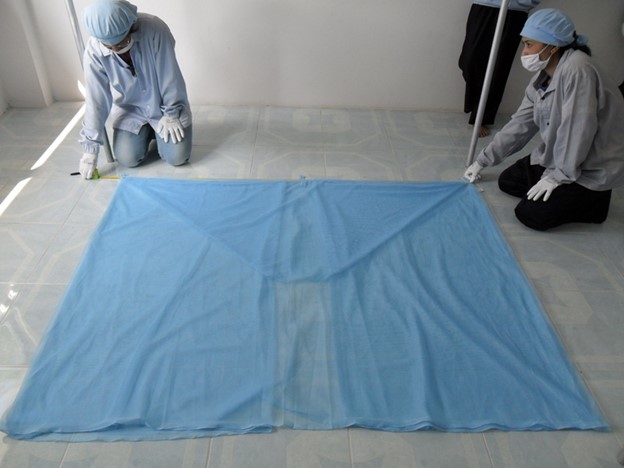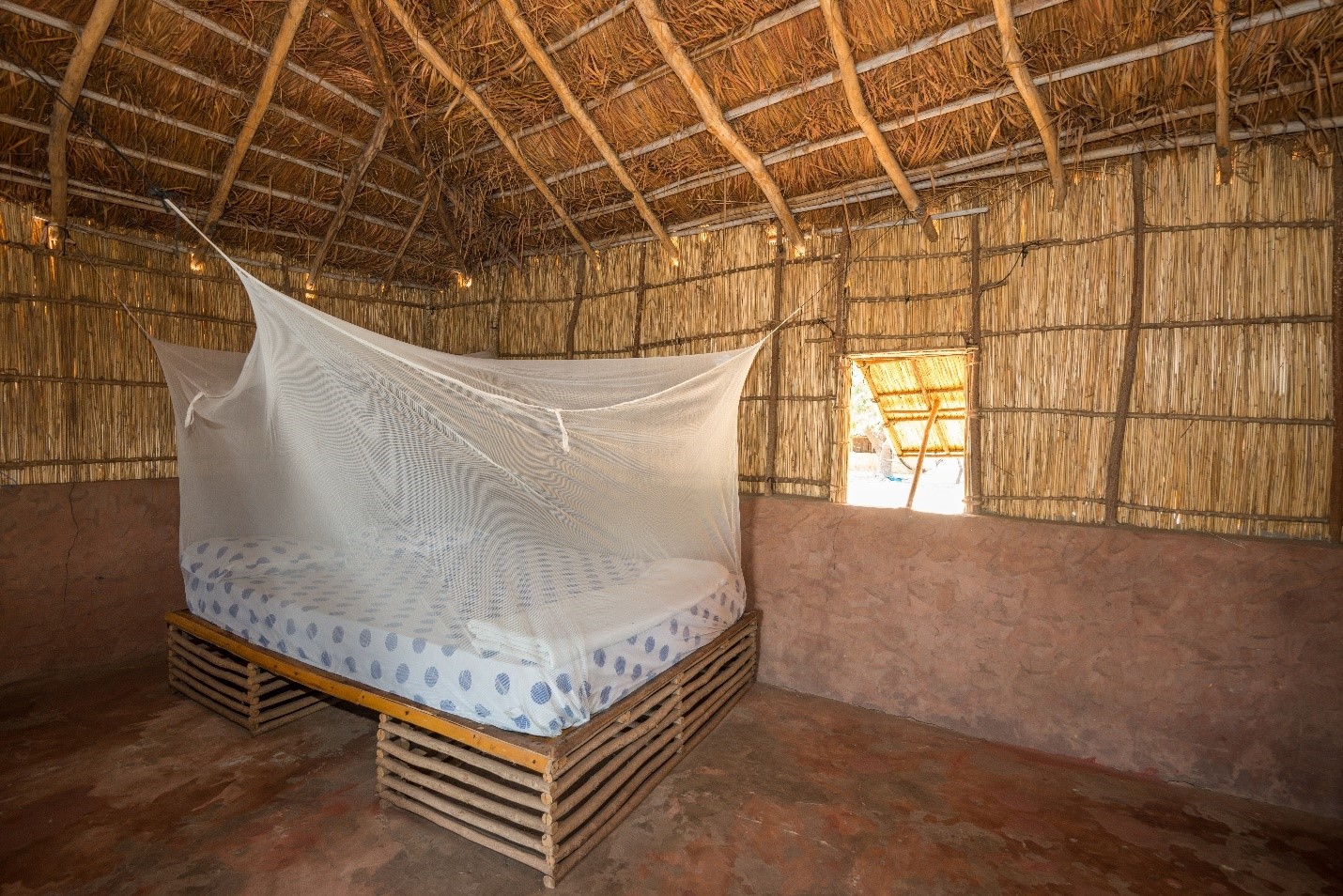

Crown Agents - Inspecting Mosquito Bed Nets to Prevent Malaria
World Malaria Day: combatting a deadly infection, one bed net at a time
There is no doubt that malaria is one of the most pressing public health crises affecting the world today. With an estimated 241 million cases in 2020, this disease affects large swaths of the African population, where 96% of all malaria deaths are accounted for. However, what makes this crisis uniquely troubling is that malaria itself is entirely preventable and treatable.
This World Malaria Day, WHO is calling for greater innovation and investment in technology that will improve vector control, diagnostics, antimalarial medicines and other tools. Yet it’s long been known that one of the most effective weapons in the fight against malaria is a simple, unassuming piece of technology: a bed net. Forming a protective barrier around the people sleeping under them, these bed nets keep out disease-spreading mosquitos and have been shown to reduce illness, severe disease and death due to malaria in endemic regions.
Under the Global Malaria Initiative, Crown Agents inspects Long-Life Insecticide-Treated Nets (LLLNs) pre-shipment. Bed nets are only effective when they are manufactured exactly to specification: just one small tear in the fabric could provide an entry point for mosquitos or other insects. When a small imperfection could mean the difference between life and death, we know just how important it is to ascertain the product quality before it is delivered to vulnerable communities.
Over the past five years we have partnered with various clients, NGOs and international agencies to manage inspection programmes for LLINs on a global scale. Our experienced inspectors have reviewed over 660 million bed nets intended for destinations rife with malaria-spreading mosquitos, including Nigeria, Uganda, Tanzania, India, Madagascar and the Democratic Republic of Congo. We’re committed to stopping the spread of this disease by using our long-standing technical expertise and world-wide network of trained inspectors to ensure product standards are upheld at every stage of the supply chain.

How do inspections prevent the spread of malaria?
Over 95% of the inspections we carry out happen before the product even leaves the warehouse. Physical inspection prior to shipment ensures the integrity of the bags and bales around the LLIN and provides confirmation that all standards have been met. Our inspectors carefully check nets against categories of major and minor defects by inspecting every millimeter to ensure there are no holes, imperfections or open seams, with samples selected at random to be sent for mechanical and chemical testing by one of the many internationally accredited laboratories we work with. Through this thorough analysis we’re able to verify a product’s safety and confirm it will provide protection for end users in malaria endemic regions.
Crown Agents will also carry out post-shipment tests at the destination to ensure no damage has occurred in transit or storage, and can witness test containers by verifying they are unsealed correctly, tallying the number of netting bales against the contacted amount and assessing the condition of the delivered goods at the final stage of the journey.
Our sampling and inspection methodology are based on international industry standards including ISO-2859-1 and the WHO Technical Consultation on Specifications and Quality Control of Netting Materials and Mosquito Nets. Having accumulated an incredible 3,383 days of technical inspection work on LLINs alone, Crown Agents’ global network of inspectors are experts in their field. The speed of our service, without compromise on the quality of the work, forms the core of our approach. This professionalism ensures that vital consignments arrive quickly and safely in the malaria-hit countries where they are most needed.
What’s next in the fight against malaria?
In 2020, an estimated 627,000 people died of malaria - most of whom were young children in sub-Saharan Africa. In many of the poorer, developing regions in which it is endemic, the disease is one of the leading causes of illness and death, and the most vulnerable groups, children and pregnant women, are at huge risk of contracting it every day. The costs of malaria – to individuals, families, communities and nations – are therefore understandably vast. This is particularly true for the poorest households; one Africa-wide study estimated the total costs of malaria per capita to be US$3.15.
With the entry of new manufacturers in recent years, LLINs have become cheaper and more readily available. An LLIN now costs around USD $4.5 and provides effective insecticide protection for at least 3 years. This low-cost, highly effective tool could save thousands of lives every year – but without quality assurance and rigorous testing it could be unusable.
End users need to be sure of the protection their bed net offers. This can be guaranteed by a skilled, experienced and dedicated network of international inspectors, trained to the highest levels, with standards upheld throughout the supply chain. It’s our small part in the global fight against this disease.
Saving lives. One net at a time.